
The B2B platform for the best purchasing descision. Identify and compare relevant B2B manufacturers, suppliers and retailers
Close
Filter
Result configuration
Continents
Select continent
Locations
Result types
Company type
Select company type
Industries
Select industry
Company status
Select company status preset
Number of employees
Min.
Max.
Founding year
AI Media Labs
Mumbai, India
D
1-10 Employees
2018
Key takeaway
AI Media Labs emphasizes its commitment to artificial intelligence as a means to replicate and enhance human skills, ultimately fostering creativity for future generations. The company integrates advanced technologies into its software solutions, aiming to improve performance and efficiency in various industries.
Reference
Product
Artificial Intelligence
Artificial Learning
London, United Kingdom
A
1-10 Employees
2012
Key takeaway
Artificial Learning Ltd is collaborating with top UK universities to integrate advanced machine learning algorithms into ASICs, highlighting their commitment to advancing artificial intelligence technology.
Reference
Core business
Company | Artificial Learning
Ai Solutions
Bloomfield Hills, United States
B
1-10 Employees
2020
Key takeaway
Ai Solutions leverages significant breakthroughs in artificial intelligence technology to provide clients with innovative services, including predictive technologies for autonomous vehicles, financial and weather forecasting, and business operations optimization. Their unique approach enhances traditional machine learning and AI solutions, aiming to advance the field further.
Reference
Core business
Ai Solutions - Artificial Intelligence, Machine Learning
We use a unique approach to both enhance traditional machine learning and artificial intelligence solutions as well as potentially bootstrap a strong AI.
Looking for more accurate results?
Find the right companies for free by entering your custom query!
25M+ companies
250M+ products
Free to use
Analytics Intelligence
London, United Kingdom
A
11-50 Employees
2017
Key takeaway
[AI] Analytics Intelligence is a software development company specializing in data analytics and artificial intelligence, emphasizing the transformative impact of generative AI and data analysis on organizations. Since its inception in 2011, the company has focused on enhancing data literacy and leveraging machine learning to empower businesses in making informed, data-driven decisions.
Reference
Core business
[AI] Analytics Intelligence | Making Analytics and AI Accessible To All
Cognitive Consulting
Malaysia
C
11-50 Employees
2017
Key takeaway
Cognitive Consulting is a Malaysian company that specializes in Artificial Intelligence (AI), along with Robotic Process Automation (RPA) and Machine Learning (ML). They offer consulting and implementation services to help organizations adopt and integrate AI technologies effectively.
Reference
Product
Artificial Intelligence | Cognitive Consulting
Delighteck
Singapore
C
11-50 Employees
2017
Key takeaway
Delighteck specializes in providing bespoke AI services designed to revolutionize business operations, highlighting their expertise in integrating AI with IoT and data to enhance efficiency.
Reference
Service
Artificial Intelligence
Tensorminds Private Limited
Karachi Division, Pakistan
E
11-50 Employees
2018
Key takeaway
Tensorminds Private Limited specializes in Artificial Intelligence and offers consultancy services to help enterprises identify and implement AI applications. Their solutions encompass various sectors, including automation in container terminals, media monitoring, medical diagnosis, and voice action-based business intelligence.
Reference
Product
Products
AI Powered Products & Solutions
Neuralbeans
Corfu, Greece
B
1-10 Employees
2021
Key takeaway
The company is a technology startup focused on developing innovative and intelligent applications, with a strong emphasis on the successful adoption of artificial intelligence. Their expertise includes natural language processing and computer vision, aiming to enhance products and services to improve quality of life.
Reference
Product
Artificial Intelligence – neuralbeans
Xiaoi Robot
Huangpu District, China
D
251-500 Employees
2001
Key takeaway
The company specializes in delivering AI applications and training for various sectors, including government and enterprises. With a focus on innovation and practical use cases, it has developed extensive applications of artificial intelligence across multiple fields, addressing key challenges in the industry.
Reference
Core business
Cognitive Intelligence AI Solution Provider | Xiao-i
AI Automation Agent
Berlin, Germany
A
1-10 Employees
2024
Key takeaway
The company specializes in creating tailored AI automations for forward-thinking businesses.
Reference
Service
AI Automation Agent Buildingg
AI Automation Agent is your premier partner for integrating AI solutions within your business processes. We specialize in designing and implementing custom AI and machine learning systems that automate complex tasks, enhance efficiency, and drive growth. Our service offers wide-ranging applications such as chatbot creation, streamlining accounting processes, and optimizing customer support, all tailored to your industry's needs. Our project-based pricing ensures that solutions are personalized, value-driven, and align perfectly with your goals. With our end-to-end service, you receive in-depth analysis, development, rigorous testing, and continuous support, guaranteeing that our AI integrations enhance productivity and achieve your desired outcomes. Whether you're aiming to improve customer service, optimize workforce efficiency, or reduce operational costs, our scalable, secure AI services offer you a competitive advantage.
Technologies which have been searched by others and may be interesting for you:
A selection of suitable products and services provided by verified companies according to your search.

Service
KI Telefon Bot
Go to product
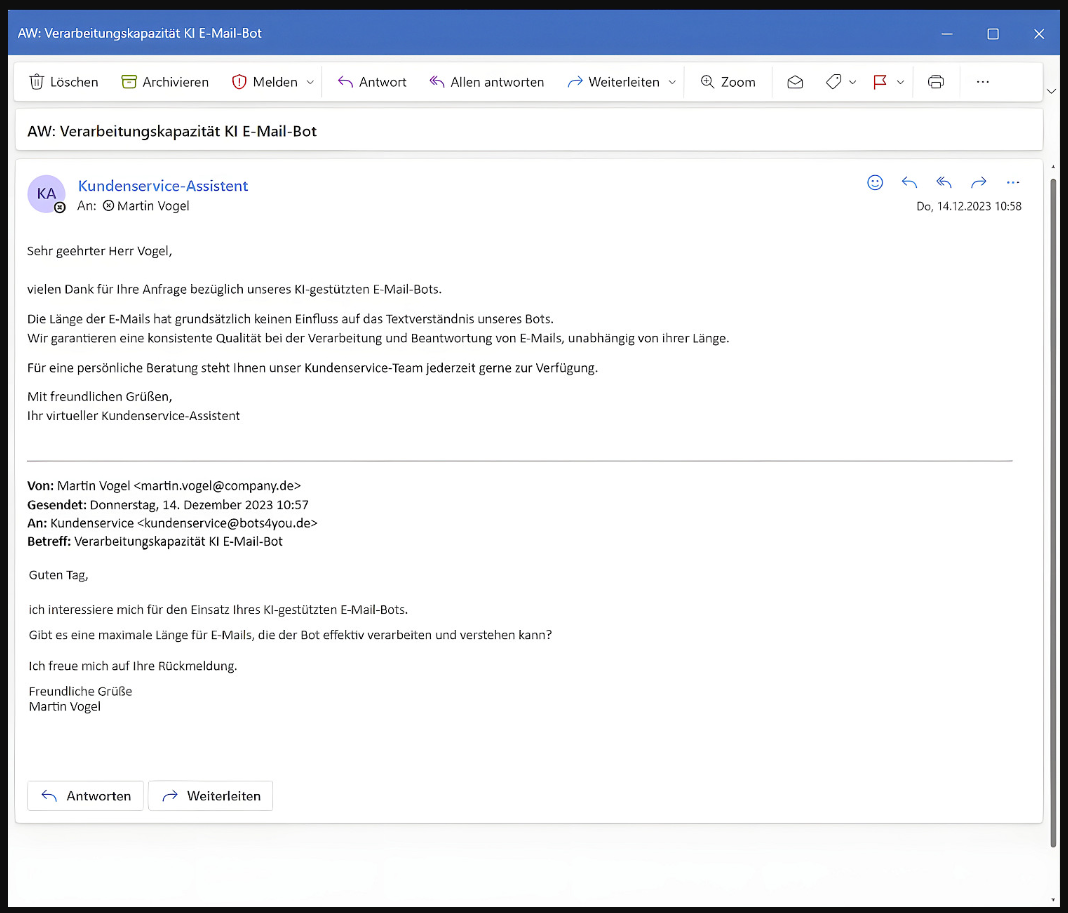
Service
KI E-Mail Bot
Go to product
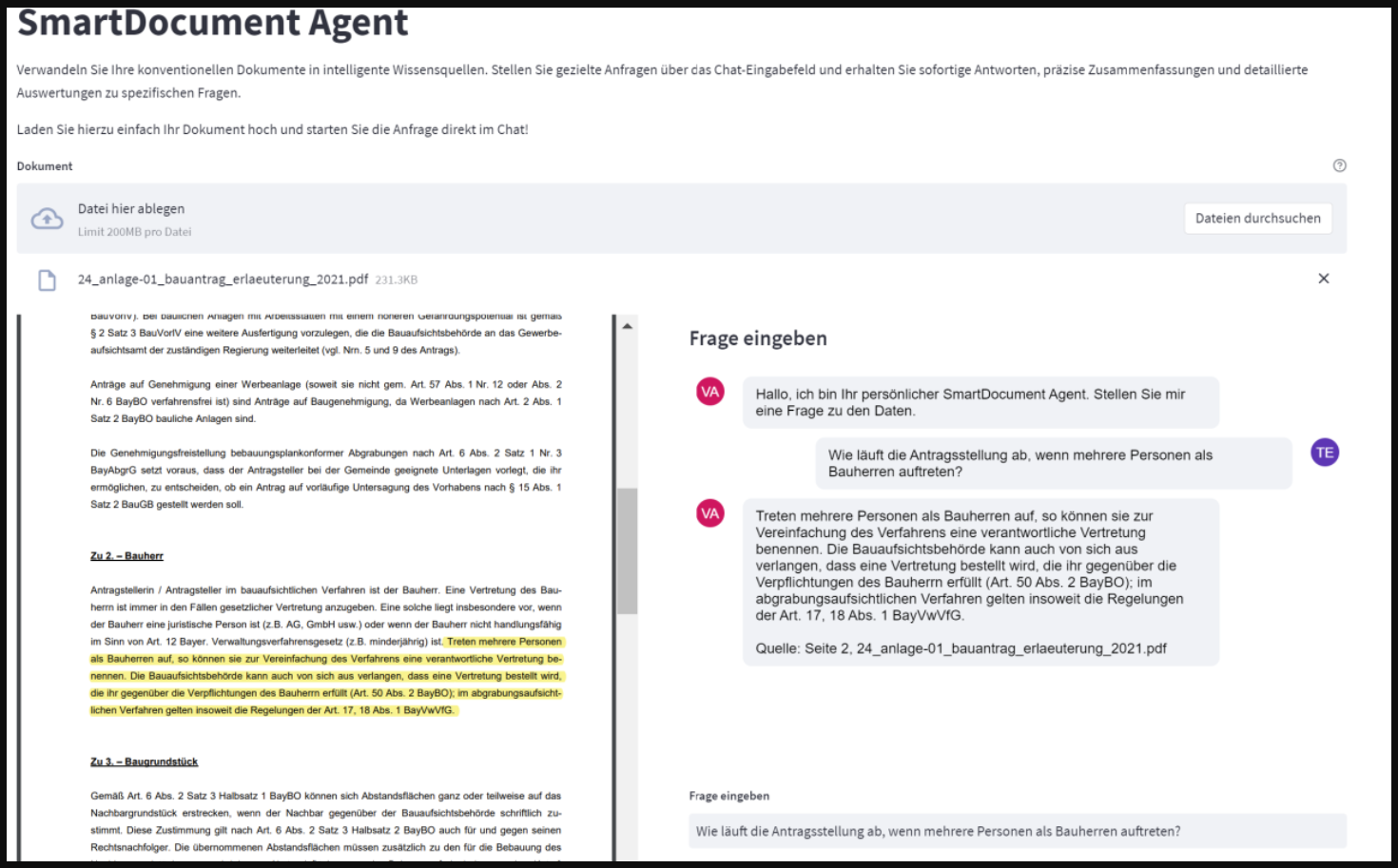
Service
KI Mitarbeiter-Assistent
Go to product
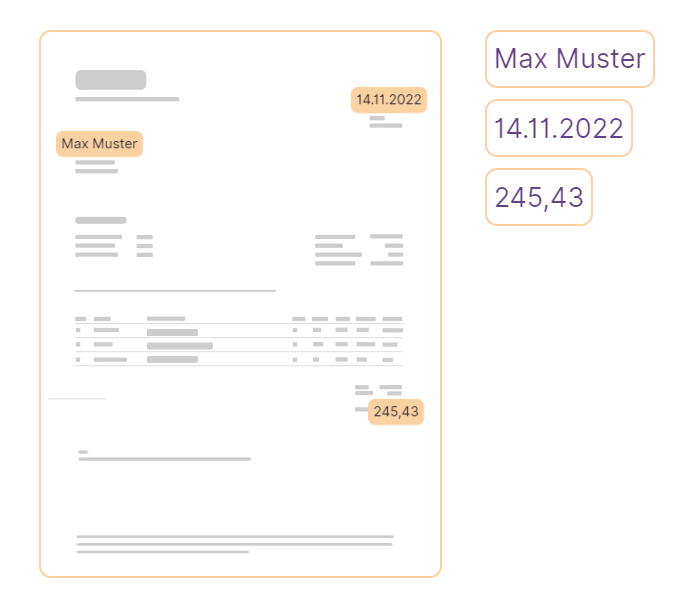
Service
KI Rechnungsbot
Go to product
A selection of suitable use cases for products or services provided by verified companies according to your search.
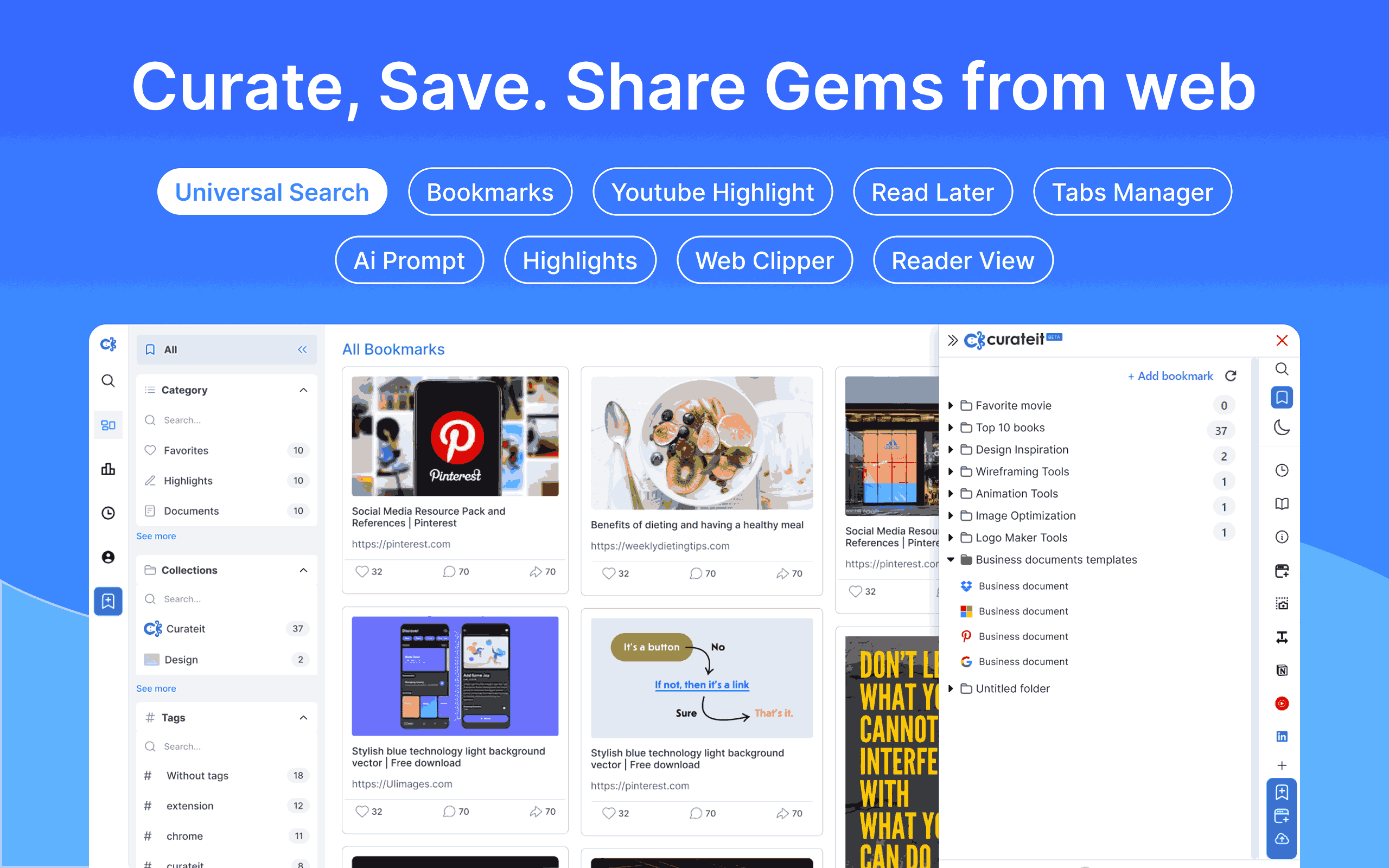
Use case
Get Started With CurateIt
Software industries, Marketing agencies, Internet marketing
Spoken like ‘Curate it’ is derived from the word curation meaning to filter or organize things. Another aspect of it also from root of the word curious. We believe all of us are multi-faceted beings with different interests & passions and Curateit is a platform for those crazy ones. It's a place where users can share all aspects, whether you’re a creative, artist, influencer or entrepreneur, a student or a teacher, a hobbyist or a professional.

Use case
Serviceportal
Einzelhandel, Verwaltung, Onlinehandel
Wie Merck das zentrale Serviceportal mit MR.KNOW – BPM und digitalen Assistenten automatisiert Projektumfang Um für seine internen Partner ein Service-Portal zur Verfügung zu stellen, war Merck auf der Suche nach einer agilen No-Code-Plattform, welche auch komplexe Anwendungen umsetzen kann. Darin sollten über tausend Services an einer zentralen Stelle angeboten werden. Bisher konnte das umfangreiche Service-Angebot den Business Sektoren nicht an einer Stelle systemisch zur Verfügung gestellt werden und wurde durch verschiedene IT-Systeme unterstützt. Dank des ganzheitlichen Prozessmanagements von MR.KNOW wurde dieses Problem gelöst und ein Serviceportal gebaut, um alle Anforderungen zu vereinen: die/das „SiteService4You“-Plattform/Portal. Funktionalitäten In Zusammenarbeit mit Merck hat das Team von MR.KNOW das agile Serviceportal entwickelt, welches das gesamte Serviceportfolio strukturiert und übersichtlich auf einer Plattform darstellt. Gleichzeitig wurde ein Service-Katalog als Datenbank umgesetzt, in der die Services verwaltet werden. Das Serviceportal bietet einen zentralen Zugang zum Service-Katalog, der eine Vielzahl von Funktionen und Prozessen umfasst. Die Arbeitsabläufe im Portal basieren auf der MR.KNOW - BPM Engine. Diese kann von geschulten Mitarbeitern von Merck ohne Coding einfach erstellt werden. Die Nutzer, sowohl intern als auch extern, haben über die Integration von Benutzerverzeichnissen und einer Benutzerverwaltung Zugriff auf die für sie freigeschalteten Anwendungen. Die Services, welche im Serviceportal dargestellt werden, können vom Kunden bestellt werden. Die Abwicklung der implementierten Bestellprozesse erfolgt innerhalb des Systems mithilfe von Workflows. welche optimal in die Arbeitsumgebung der verschiedenen Abteilungen integriert werden. Die Implementierung neuer Workflows oder die Anpassung bestehender Workflows kann einfach durchgeführt werden. Das Design und Layout des Portals erfüllen das Corporate Design von Merck und sind hochflexibel, individuell und einfach anpassbar. Das System ist zukunftsgerichtet und sehr agil, um die diversen Services und deren Workflows abbilden zu können.

Use case
Forecasting methodology in the insulation material industry through AI integration
Dämmaterial, Dämmaterial Industrie, Insulation Material, insulation material industry, supplier, construction, construction industry
In the complex industrial landscape of insulation materials, in which multiple market segments and diverse product lines coexist, precise forecasting and strategic planning based on this is essential. For a multinational manufacturer in this sector, forecasting plays a critical role, as it is the basis for budget distribution across the various departments. Previous forecasting methods relied on manual calculations and the use of Excel-based solutions, which often only work with simple averages. This high level of manual and personnel effort not only limited the accuracy of the forecasts, but also their timeliness and frequency. The forecasting methods were also vulnerable to unpredictable market changes, which often led to delays in the supply chain. The introduction of an AI-based forecasting tool marked a turning point for the manufacturer. This advanced tool not only uses internal historical data, but also integrates external influencing factors such as special calendar events, past and future expected inflation indices and building permits into its analyses. As a result of this comprehensive data integration, the accuracy of forecasts was significantly increased to 91.4%.The increased forecast accuracy led to numerous positive effects on operations. A more reliable forecast enabled a more efficient and targeted budget allocation, which made it possible to achieve significant cost savings. Improved predictability and speed of response to market changes also contributed to a reduction in delivery times. The implementation of AI technology thus strengthened operational safety and sustainably improved the company's competitiveness.By using innovative AI technologies in forecasting practice, the insulation material manufacturer was not only able to optimize its processes, but also make it more adaptive and resilient to market fluctuations. This case study impressively demonstrates how technological advances can be used specifically to solve specific industry-specific challenges in order to promote operational efficiency and economic stability.

Use case
Aerospace supply chain planning
Aerospace, industrial, industry, supply chain, aerospace industry, supplier
Customers from various industrial sectors, including original equipment and the aftermarket, are facing similar challenges. A specific example of this is a supplier to leading aerospace companies. It must predict the developments of over 4,000 material types in various market segments. For one of its main end customers, the planning processes were previously carried out manually and exclusively using Excel. In the past, this method of planning led to inaccurate results, which in turn led to both inventory shortages and excessive inventories. To overcome these challenges, pacemaker.ai provides a solution that provides automated, regularly updated forecasts. These forecasts serve as a basis for replenishment planning and help to precisely define the quantities to be purchased at the level of individual products.The planning is based on a forecast period of 18 months, during which the delivered materials are carefully reviewed. An important feature of the pacemaker.ai solution is the implementation of a five-level grouping structure. Within this structure, Cluster A materials are given priority, with a total of 215 articles being prioritized based on ABC/XYZ analysis.The current accuracy of pacemaker.ai's predictions is over 80%. Continuously refining and adjusting these forecasts is a key part of pacemaker.ai's commitment. This shows the company's efforts to constantly optimize its customers' supply chains and maximize their efficiency through innovative approaches in data analysis and machine learning.The integration of advanced, data-driven forecasting tools such as those from pacemaker.ai can significantly help solve traditional supply chain planning problems. The use of automated systems not only improves the accuracy and efficiency of inventory management, but also prevents costly overstocks and shortages. This represents enormous added value for suppliers in highly dynamic industries such as aerospace.

Use case
Revolutionizing sales forecasting in the filter industry with AI-based solutions
filter industry, oil filters, air filters, automotive industry, automotive, filter, filters, filter supplier, suppliers, supplier
A leading supplier in the automotive industry faced significant difficulties in predicting monthly sales of oil and air filters for the B2B market in Europe, Russia and the UK. The volatility of the “call-off” data for these products was exceptionally high and showed fluctuations of up to 80%. The previous forecasting methods were based primarily on manual calculations by a team of four employees. This approach often led to inaccuracies, particularly for products with low sales volumes, which in turn was offset by high inventories. These inventories represented a significant capital commitment of billions. With these challenges in mind, the company turned to pacemaker.ai, a specialist in AI-powered forecasting technologies. Pacemaker.ai developed an advanced machine learning system that was specifically configured for the supplier's needs. This system integrated not only historical sales data, but also industry-specific influencing factors such as motor vehicle registrations, pollen count data and air pollution indices into the analysis. The introduction of the automated demand forecasting solution fundamentally transformed the company's sales forecasting. The forecast accuracy was significantly increased, which led to a reduction in forecast error of an impressive 41%. This improvement extended across a portfolio of 2000 products. In addition, manual planning effort was significantly reduced, which enabled employees to focus on more strategic tasks.Automation and increased accuracy of sales forecasts enabled the company to manage its inventory more efficiently and free up capital that had previously been tied up in oversized inventory volumes. These resources can now be invested in innovative projects and the further development of the product range. The success of this project demonstrates the potential of AI-based technologies to transform and sustainably improve traditional business processes.
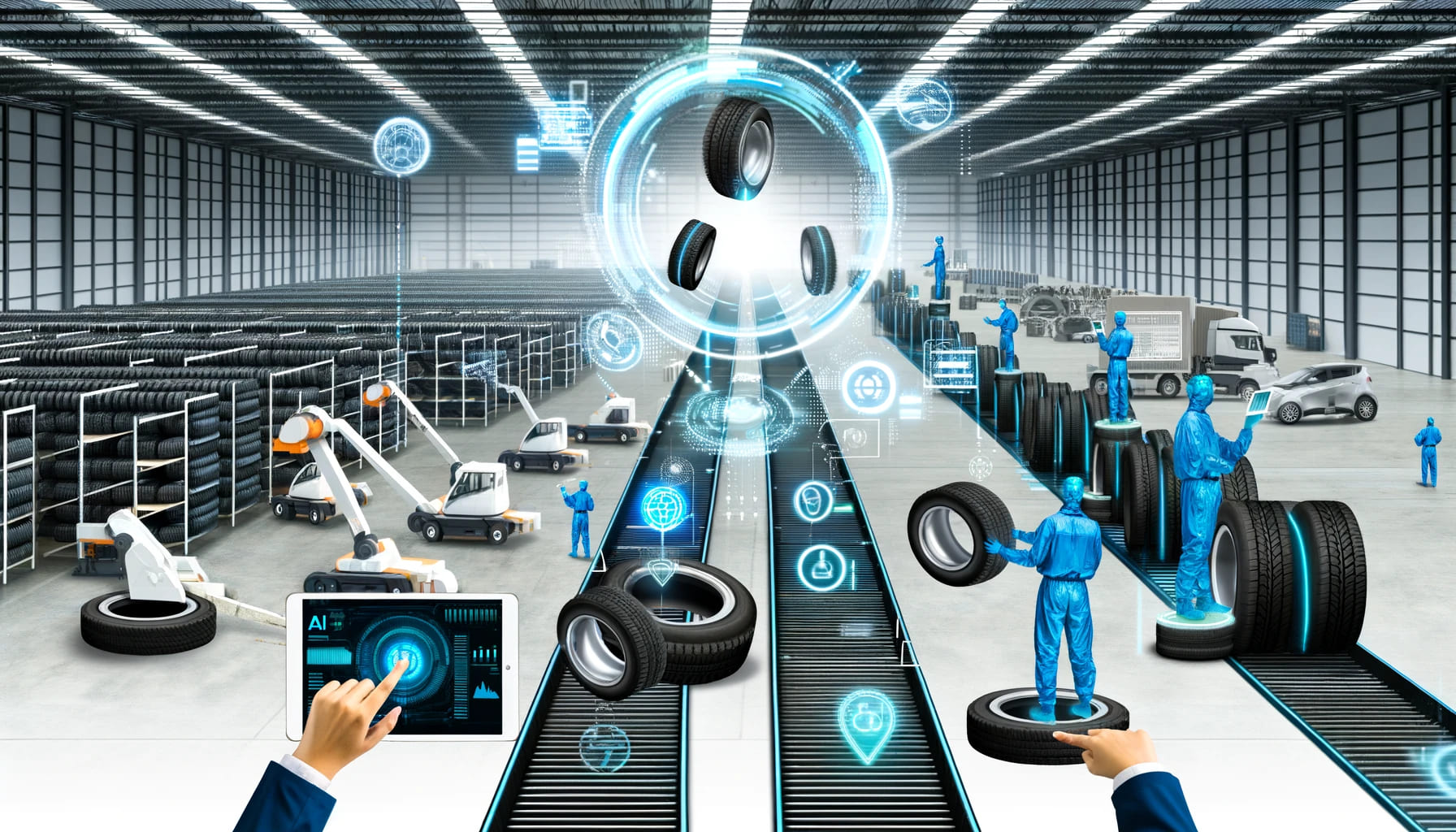
Use case
Optimizing logistics planning through AI-driven forecasting technology
logistics, warehouse, tire, tires, logistics planning, warehouse opeations, delivery
Every year, our customer is faced with the daunting task of managing logistics for the delivery of millions of tires. Efficient planning of personnel and other resources necessary for warehouse operation requires extremely precise forecasts of the expected output quantities of goods. The previous method, based on monthly forecasts from the client, required extensive manual entries in Excel spreadsheets. These were supplemented with our own assessments in order to create a useful planning basis. However, the high expenditure of time and the poor quality of forecasts led to customer dissatisfaction. To address these challenges, pacemaker.ai has developed a tailor-made solution that not only improves the accuracy of forecasts but also significantly simplifies the planning process. By implementing advanced forecasting methods that forecast daily and weekly output volumes for each coming month, the forecast error was reduced by an impressive 18%.Integration of relevant influencing factorsThe new forecasting method uses a variety of data sources, including historical sales data as well as information on holidays, holidays, weather conditions and seasonal fluctuations. These factors play a decisive role in predicting output quantities and contribute to further increasing accuracy.Automation and increased efficiencyThe daily and automatically updated forecasts are made available to the customer, which reduces manual effort to a minimum. This increase in efficiency enables customers to better plan resources and react more quickly to changes in demand.Future prospects and further plansBy using this innovative technology, our customer was able to strengthen its position in the highly competitive logistics market. The successes of the new forecasting methods motivate further exploration of additional uses of AI in other areas of the company. Overall, this case clearly shows how the use of artificial intelligence and machine learning in logistics planning not only improves forecast accuracy, but can also significantly increase operational efficiency.
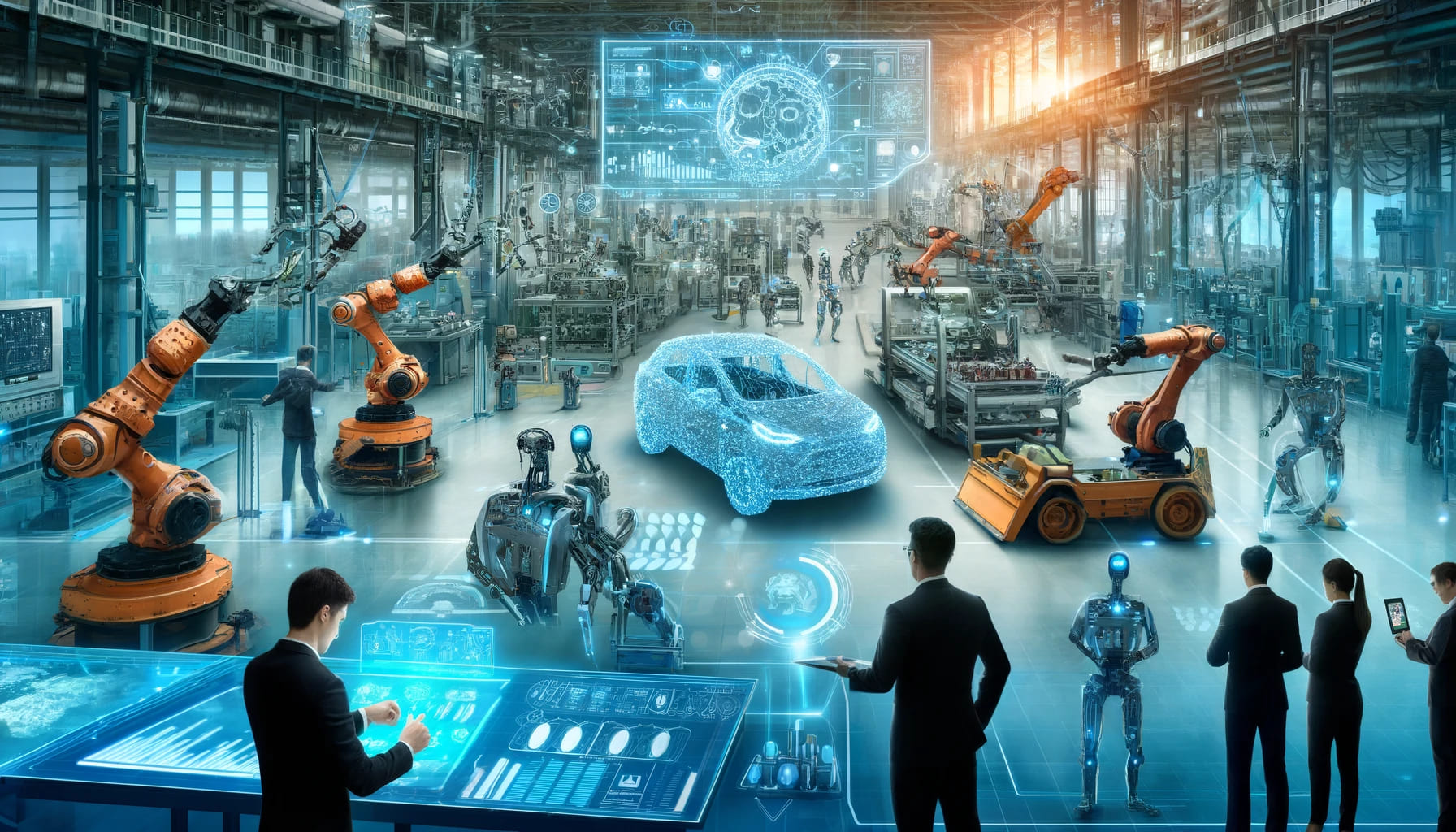
Use case
Automobile manufacturer predicts sales of over 500,000 items
automotive, automobile, automobile manufacturing, automotive industry, car, car industry
A leading German automotive manufacturer was confronted with fluctuating demand in its after-sales business and was increasingly dissatisfied with the previous approach to predicting these developments. In search of an improved solution, the company decided to implement pacemaker.ai, a provider of transparent forecasting technologies.The forecasting method used up to that point was developed internally and was based primarily on trend analyses. However, this method had recently lost accuracy. An additional problem was that the expertise required to carry out and adjust forecasts was largely concentrated with just one person in the company, increasing the risk of loss of knowledge and dependency.The transition to pacemaker.ai offered a solution that not only improved forecasting quality, but also more broadly distributed knowledge of predictive methods within the company and thus made it less susceptible to staffing bottlenecks. As a result of this strategic change, the automotive manufacturer was able to create a more robust and transparent planning basis, which ultimately led to more efficient management of the after-sales area. pacemaker.ai has developed a comprehensive forecasting system for a manufacturer that includes both long-term and short-term forecasts for around 500,000 SKUs. The long-term forecasts are designed to help the original equipment manufacturer (OEM) plan product life cycles. These forecasts cover a period of 15 years and are therefore particularly valuable for strategic decisions and long-term planning processes.In parallel, the short-term forecast provides the OEM with operational and medium-term planning support. These forecasts cover a period of two years and provide monthly forecasts that enable the company to respond flexibly to market demands and production conditions.It is noteworthy that all forecasts created by Pacemaker.ai have significantly exceeded the expected accuracy values. This underscores the effectiveness and reliability of the predictive methods and technologies used by Pacemaker.ai. By integrating these precise forecasting solutions, the OEM can not only optimally allocate its resources, but also strengthen its market position through efficient and targeted production planning.

Use case
Optimizing inventory planning in the automotive supplier industry
automotive supplier, automotive supplier industry, supplier, automobile supplier
The customer, who works as an original equipment manufacturer in the automotive industry, also offers automotive parts on the aftermarket. The planning challenges for this customer are complex. On the one hand, incomplete time series due to newly introduced products make forecast accuracy difficult. On the other hand, the highly volatile ordering behavior of OEMs (original equipment manufacturers) leads to further complications. These factors make reliable planning increasingly difficult.In the customer's previous approach, planning was carried out by regularly, manually importing data into a central Excel spreadsheet. However, this method proved to be time-consuming and inefficient. The forecasts created in Excel were often inaccurate and only available at a very rough level of aggregation. These inaccuracies in turn had negative effects on warehousing. There were often both excess inventory, which caused unnecessary costs, and out-of-stock situations, which led to supply bottlenecks and potentially lost sales.The need to optimize this planning process is obvious. A more efficient and accurate method could not only save time, but also improve the accuracy of forecasts and optimize inventory levels to minimize both overstocks and shortages. pacemaker.ai has developed tailor-made forecasts for the customer, which meet the various requirements and range from model series to SKU (stock keeping unit) level. These forecasts are structured through various filter levels, which include plants, production lines and material types.pacemaker.ai's predictions are configured to be made on a monthly basis. The accuracy of these forecasts varies depending on the level of aggregation, with the prediction accuracy exceeding 85% in some cases and as much as 95% in others. This high level of precision in forecasts enables customers to make more efficient and precise planning and decisions in the production process.
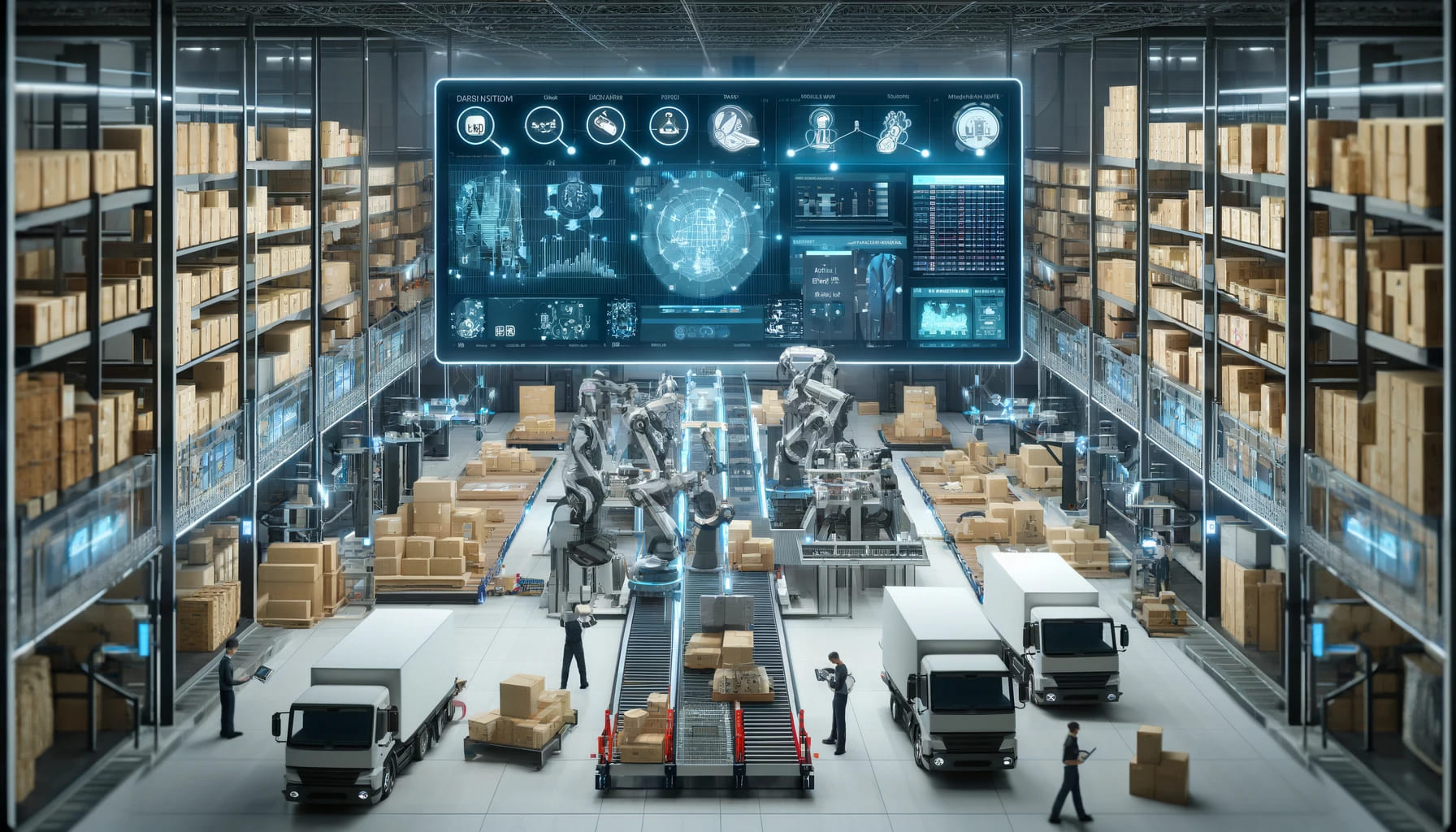
Use case
Optimizing supply chain management through precise forecasting models in the textile industry
textile, textile industry, fashion, retail sector, retail logistics, logistics services, textile logistics
A well-known logistics service provider, which works exclusively for a leading fashion company in the textile retail sector, is facing significant challenges. The company employs around 1000 people who service eight distribution centers in Germany and Austria. The main problem currently lies in the highly fluctuating incoming goods caused by suppliers. These irregularities lead to inaccuracies in forecasting and significantly impair predictability. In particular, the lack of delivery reliability on the part of suppliers makes efficient process planning in the logistics center difficult. In order to improve the reliability of forecasts and enable more effective planning, a detailed evaluation of suppliers was first carried out with regard to their delivery reliability. This made it possible to model expected schedule accuracy and corresponding delivery time windows specifically for each supplier. In addition, additional variables such as vacation periods, public holidays and inventory periods were included in the models. By integrating these factors into an advanced machine learning model, the customer was not only able to increase predictive accuracy, but also optimize personnel planning and the use of warehouse capacities. The model also supports smarter management of supplier relationships by allowing early adjustments in delivery plans to prevent bottlenecks and increase efficiency. The introduction of this technology has enabled the logistics company to make its operations much more agile and responsive. With improved forecast accuracy and optimized resource allocation, the company is now able to react more flexibly to market changes and increase customer satisfaction through timely deliveries. In light of these successes, the company plans to expand the application of machine learning models to other areas of its supply chain in order to effectively master future challenges.
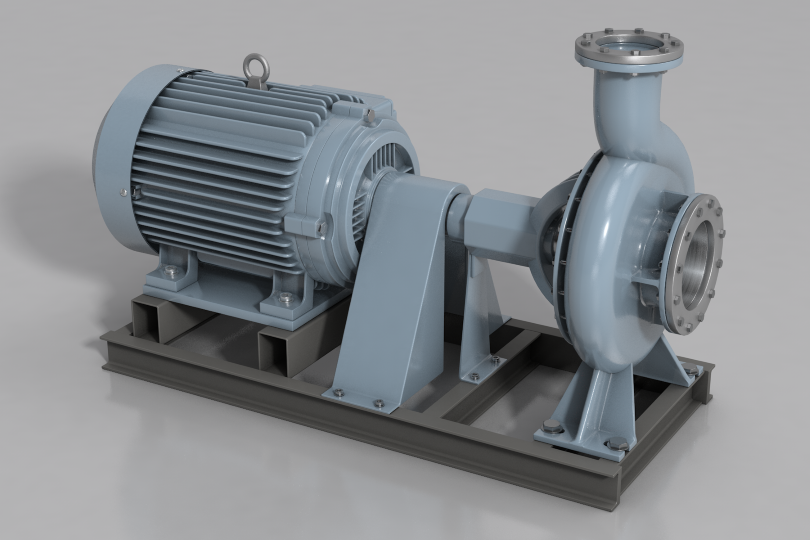
Use case
Intelligent pump monitoring using artificial intelligence
automotive supplier, paper, aerospace, food, beverage
The supply pump is one of the central components of many plants. It ensures fluid circulation through the entire system. Damage to this pump will result in the failure of the entire plant – this must be avoided at all costs. In this specific case, the pump is operated at various speeds, which makes static monitoring more difficult. Artificial intelligence can be used in a targeted manner here: AI simplifies pump monitoring while increasing the efficiency of the entire process. Process deviations (anomalies) are detected early and downtime is minimised.

Use case
Generative AI Virtual Agent
All
Create a virtual agent that will support your business. It can be an internal virtual agent helping your employees or one helping your customers. Either way it is a great way to boost productivity and enhance customer experience. The goal is to get you to production fast so that you can start seeing the value of your investment fast.

Use case
AI Workshop for Manufacturing Quality Control
Manufacturing, Quality Control, Production
A manufacturing company with 8 managers participated in our 4-hour AI workshop to explore automation opportunities. Through customized content and hands-on exercises, we demonstrated AI applications for visual inspection in their quality control process, showing potential for 30% defect rate reduction. The interactive session helped transform uncertainty into a clear AI implementation roadmap, leading to a focused pilot project. The workshop successfully bridged the knowledge gap and enabled the management team to identify practical AI applications specific to their production challenges.
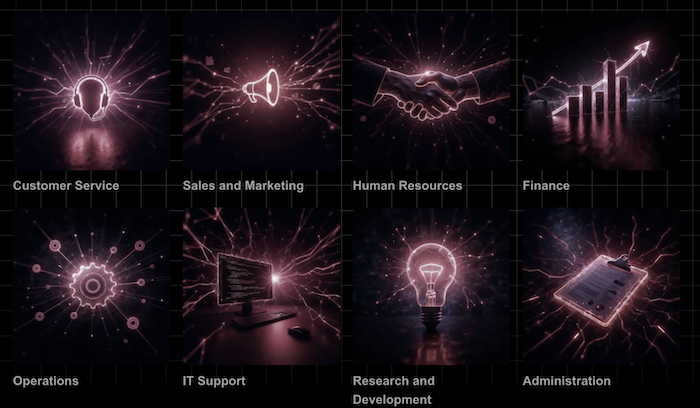
Use case
AI Automation Use Cases
real estate
AI Automation Agent offers innovative AI automation solutions tailored to enhance various business operations across multiple industries. Our use cases include call answering to efficiently manage and resolve common queries, social media management for planning posts and gauging performance, round-the-clock customer support for personalized assistance, and enhanced DevTools for optimizing developer workflows. Additionally, we streamline accounting processes such as invoicing and data entry. Our services empower businesses in technology, manufacturing, healthcare, finance, retail, education, and real estate to boost efficiency, reduce costs, and drive growth. We prioritize customization and integration with existing systems to ensure our solutions align with your specific business needs. Our AI solutions are scalable and secure, providing businesses with the tools needed to innovate and stay competitive in their respective fields.
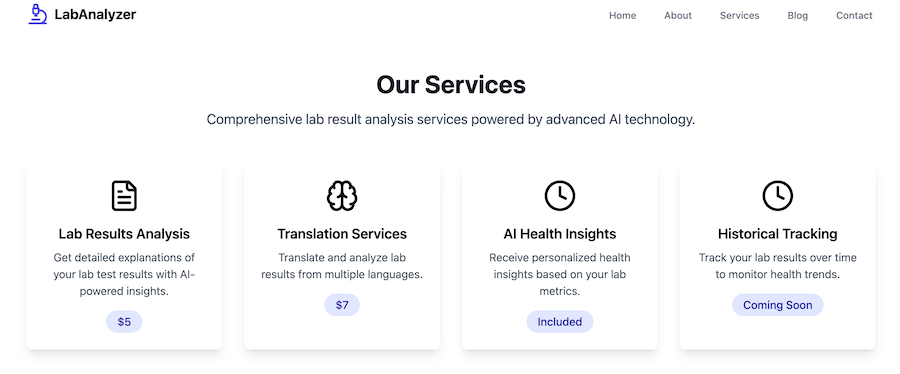
Use case
AI Lab Analysis for Health Metrics
ai
LabAnalyzer is an AI-powered platform designed to simplify medical lab test interpretation. Users can upload lab results in various formats (PDF, image, or text) and receive instant, accurate explanations of their medical data. With advanced AI capabilities, LabAnalyzer provides detailed analyses of key metrics, highlights potential health issues to discuss with doctors, and offers translations into multiple languages. Key features include: - Support for PDFs, images, and text uploads with OCR for text extraction. - Detailed AI-powered insights into lab metrics like glucose, cholesterol, and more. - Language translation options for reports in real-time. - A secure, user-friendly platform with affordable pricing starting at $5. LabAnalyzer aims to empower individuals to better understand their health data and make informed decisions.

Use case
Conversational AI Platform for Enterprises
Machine Learning, Artificial intelligence, Deep Learning, Data Science
"Mei AI is a global leader in AI solutions, offering industry-trained Large Language Models that can be tuned accordingly with company-specific data and hosted privately or in your cloud. Our RAG ( Retrieval Augmented Generation ) based AI approach uses Embedded Model and Retrieval context ( Semantic Search ) while processing a conversational query to curate Insightful response that is specific for an Enterprise. Blended with our unique skills and decade long experience we had gained in Data Analytics solutions, we combine LLMs and ML Algorithms that offer great solutions for Mid level Enterprises. We are engineering a future that allows people, businesses, and governments to seamlessly leverage technology. With a vision to make AI accessible for everyone on the planet, our team is constantly breaking the barriers between machines and humans."
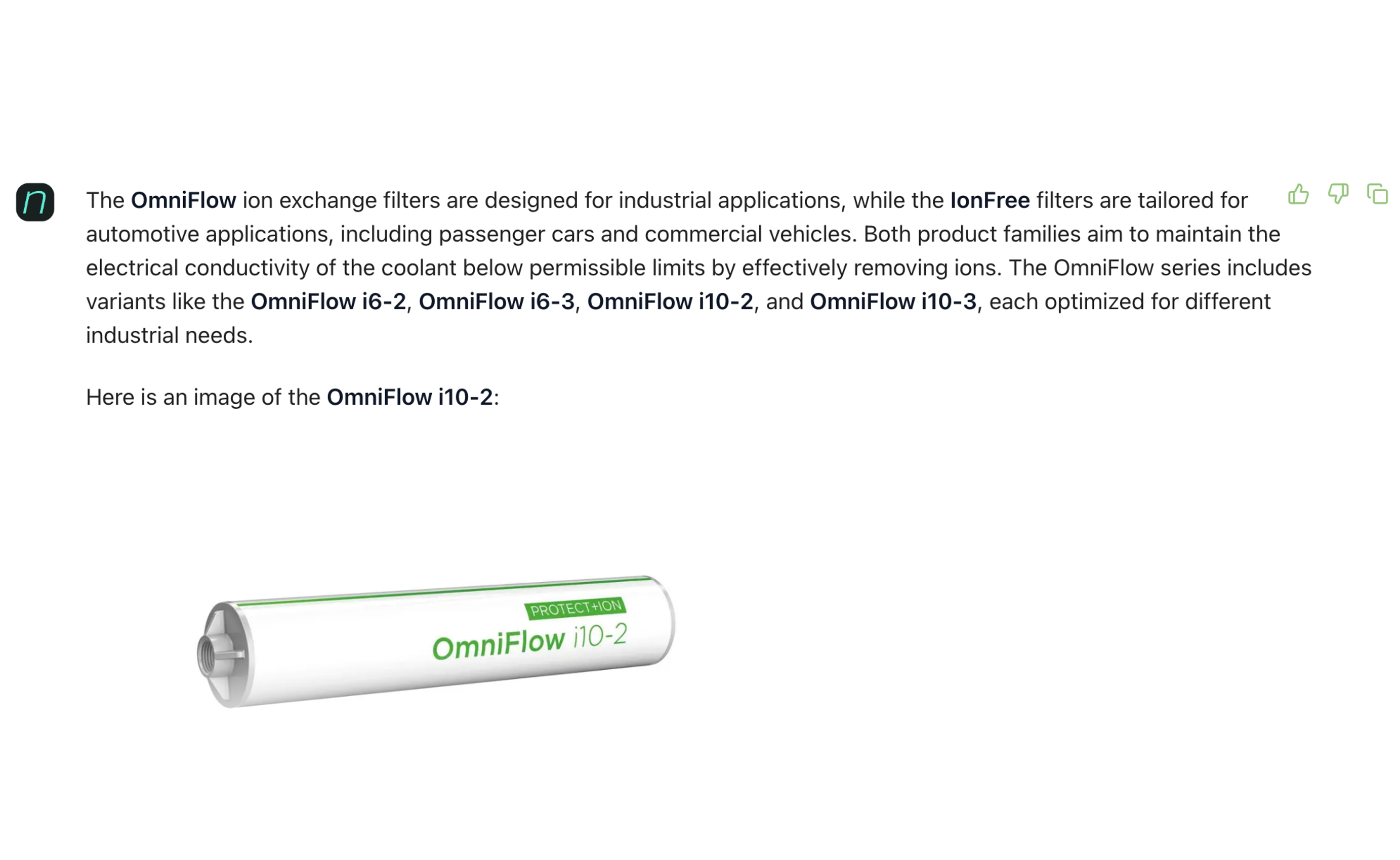
Use case
Product Wizard for Online Shop
Machinery & Equipment Manufacturing, Medical Equipment Manufacturing, Specialized Manufacturing, Industrial Component Manufacturing, Materials Manufacturing
Our AI agent can seamlessly integrate into existing online shops through simple website and email integration, requiring minimal IT resources while preserving existing sales processes. It enables customers to self-navigate complex product selection directly through your shop interface, automatically generating qualified quotes based on documented requirements. This implementation reduces transaction costs by 60%, delivers qualified responses in minutes instead of days, and creates 20% additional capacity by automating repetitive tasks, allowing your sales engineers to focus on high-value activities.
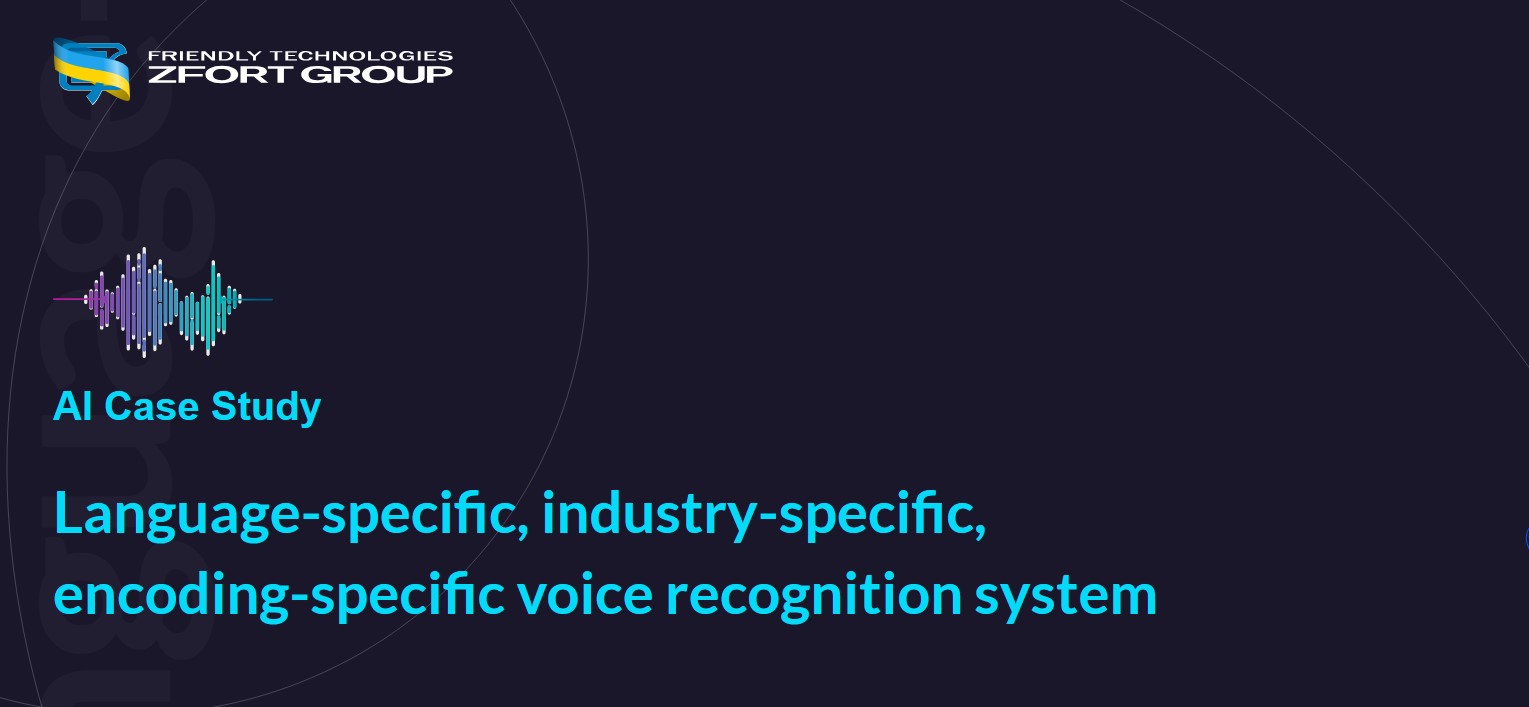
Use case
Voice Recognition System
Media, Journalism
There are a number of neural networks out there capable of parsing clearly articulated English as long as high quality microphone is used and common words are spoken. And there are a number of cases where non-English speakers need to communicate non-trivial terms in a specific audio encoding. We built a system for those cases and trained several neural networks to understand what no other AI can understand.
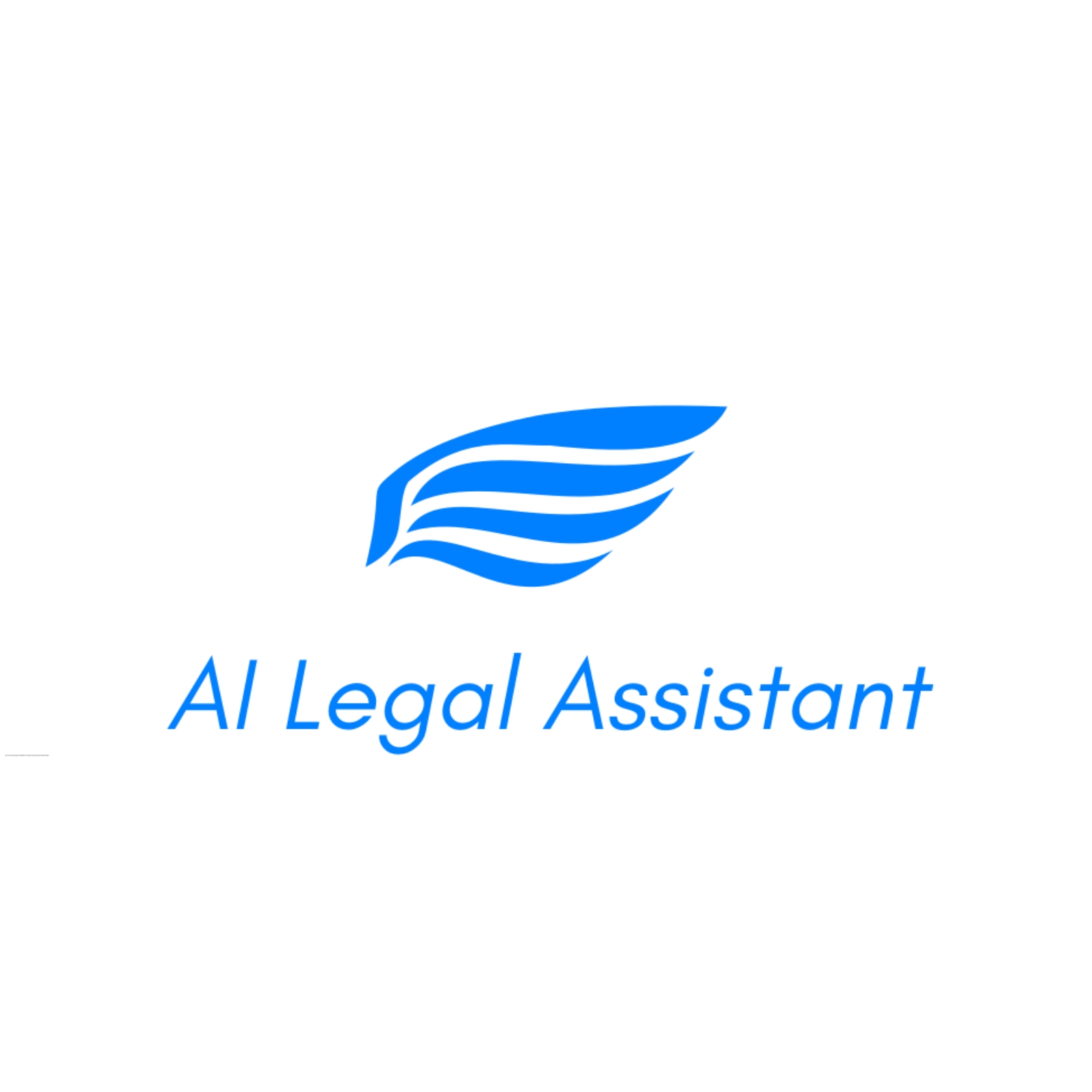
Use case
AI Legal Assistant Comparison
Law Firm, Legal Practice, Legal Services
Take Your Business To The Next Level. At AI Legal Assistant, we believe in empowering legal professionals with cutting-edge technology to elevate their practice to unprecedented levels of efficiency and accuracy. MAIN FEATURES: Document Review Discuss Document Draft Documents Multi-Doc Review Research Assistant

Use case
Demand forecasting
Supply Chain
Demand Forecasting with Thaink²: Predict with Confidence One of the most powerful use cases of Thaink² is demand forecasting, enabling businesses to predict future demand with precision, optimize resources, and reduce inefficiencies. How It Works 🔹 Data Integration – Thaink² automatically centralizes data from multiple sources (ERP, CRM, sales reports, external factors like weather, market trends, etc.). 🔹 AI-Powered Forecasting – Our machine learning models analyze historical data and external influences to generate highly accurate demand predictions. 🔹 Scenario Simulation – Businesses can test different scenarios (e.g., seasonal changes, pricing strategies, supply chain disruptions) to make informed decisions. 🔹 Automated Insights & Alerts – Real-time dashboards highlight trends, anomalies, and actionable insights, ensuring proactive decision-making. Business Impact ✅ Optimized Inventory – Reduce overstock and stockouts, ensuring the right products are available at the right time. ✅ Improved Supply Chain Efficiency – Align procurement, production, and logistics with actual demand forecasts. ✅ Revenue Growth – Increase sales by anticipating customer needs and adjusting strategies proactively. ✅ Cost Reduction – Minimize wastage and unnecessary storage costs by accurately planning stock levels. Whether you’re in retail, manufacturing, or logistics, Thaink²’s demand forecasting capabilities empower businesses to stay ahead of market trends, mitigate risks, and maximize profitability.

Use case
Get Started With CurateIt
Software industries, Marketing agencies, Internet marketing
Spoken like ‘Curate it’ is derived from the word curation meaning to filter or organize things. Another aspect of it also from root of the word curious. We believe all of us are multi-faceted beings with different interests & passions and Curateit is a platform for those crazy ones. It's a place where users can share all aspects, whether you’re a creative, artist, influencer or entrepreneur, a student or a teacher, a hobbyist or a professional.
Artificial Intelligence refers to the simulation of human intelligence in machines designed to think and learn like humans. This technology encompasses various subfields, including machine learning, natural language processing, and robotics. By analyzing vast amounts of data, AI systems can recognize patterns, make decisions, and improve their performance over time without explicit programming. The applications of Artificial Intelligence are diverse, spanning industries such as healthcare, finance, and transportation. In these sectors, AI can optimize processes, enhance customer experiences, and drive innovation, making it a pivotal element in the advancement of modern technology.
Artificial Intelligence enhances business processes by automating repetitive tasks and providing data-driven insights. By utilizing machine learning algorithms, organizations can analyze large datasets quickly, which aids in identifying trends and making informed decisions. Furthermore, AI systems can improve customer interactions through chatbots and personalized recommendations, leading to increased satisfaction and engagement. This technology streamlines operations, reduces costs, and ultimately drives efficiency within various business functions.
Ethical considerations surrounding artificial intelligence encompass a range of critical issues that can significantly impact society. One key aspect is bias and fairness. AI systems can inadvertently perpetuate or exacerbate existing biases present in training data, leading to unfair treatment of certain individuals or groups. Another important consideration is accountability and transparency. As AI systems become more autonomous, it becomes crucial to determine who is responsible for their decisions. Ensuring that these systems operate transparently allows users to understand how decisions are made, fostering trust and ethical usage. Additionally, privacy concerns arise as AI often requires vast amounts of data, necessitating careful handling to protect individuals' personal information. Addressing these ethical considerations is vital for the responsible development and deployment of AI technologies.
Artificial Intelligence plays a transformative role in healthcare, enhancing both diagnostics and treatment processes. It enables the analysis of vast amounts of medical data, improving the accuracy of disease detection. For instance, AI algorithms can analyze medical images, such as X-rays and MRIs, to identify abnormalities that may be missed by human eyes. In addition to diagnostics, AI assists in personalized medicine by predicting patient responses to treatments based on their genetic makeup. This technology not only streamlines operations in healthcare facilities but also enhances patient outcomes through more tailored treatment plans. The integration of AI in healthcare continues to grow, promising advancements in efficiency and effectiveness.
Recent advancements in artificial intelligence have focused on enhancing machine learning capabilities, natural language processing, and computer vision. Breakthroughs in deep learning algorithms have enabled AI systems to process vast amounts of data more efficiently, leading to improved accuracy in tasks such as image recognition and speech understanding. Additionally, developments in generative AI, particularly in models like GPT-3 and its successors, have revolutionized content creation and conversational agents. These systems are now capable of producing human-like text and engaging in more meaningful interactions with users. Another key advancement is the integration of AI with edge computing, allowing for faster data processing at the source, which is crucial for applications in autonomous vehicles and IoT devices.
Some interesting numbers and facts about your company results for Artificial Intelligence
| Country with most fitting companies | United States |
| Amount of fitting manufacturers | 10000 |
| Amount of suitable service providers | 10000 |
| Average amount of employees | 11-50 |
| Oldest suiting company | 2001 |
| Youngest suiting company | 2024 |
20%
40%
60%
80%
Some interesting questions that has been asked about the results you have just received for Artificial Intelligence
What are related technologies to Artificial Intelligence?
Based on our calculations related technologies to Artificial Intelligence are Big Data, E-Health, Retail Tech, Artificial Intelligence & Machine Learning, E-Commerce
Who are Start-Ups in the field of Artificial Intelligence?
Start-Ups who are working in Artificial Intelligence are Neuralbeans, AI Automation Agent
Which industries are mostly working on Artificial Intelligence?
The most represented industries which are working in Artificial Intelligence are IT, Software and Services, Other, Marketing Services, Consulting, Automation
How does ensun find these Artificial Intelligence Companies?
ensun uses an advanced search and ranking system capable of sifting through millions of companies and hundreds of millions of products and services to identify suitable matches. This is achieved by leveraging cutting-edge technologies, including Artificial Intelligence.